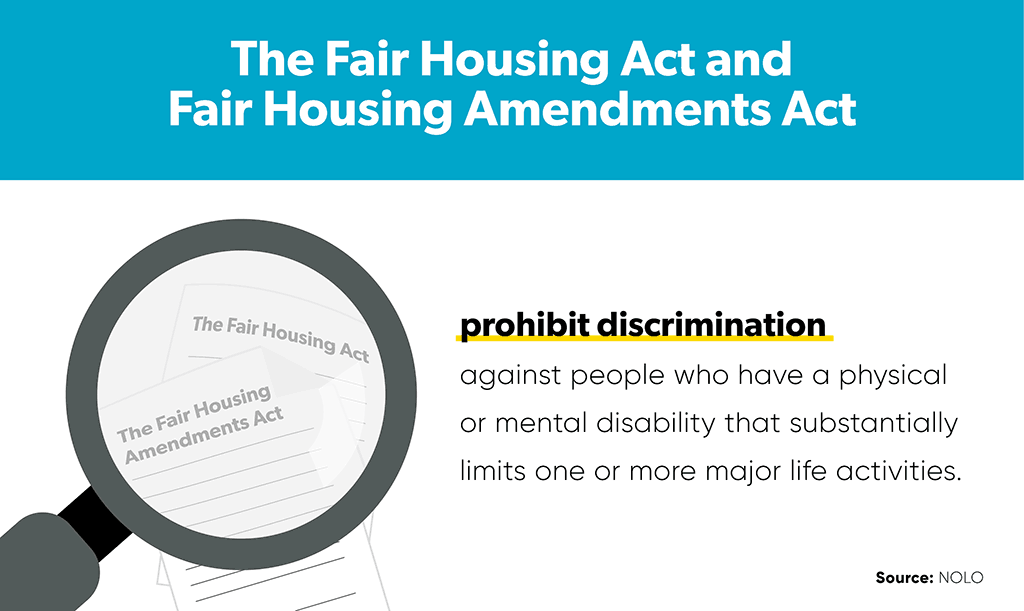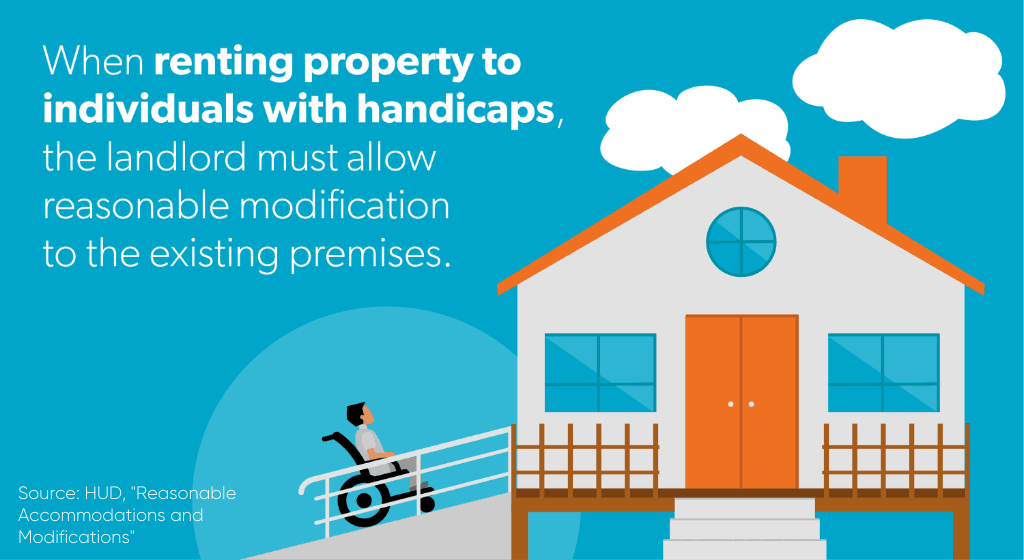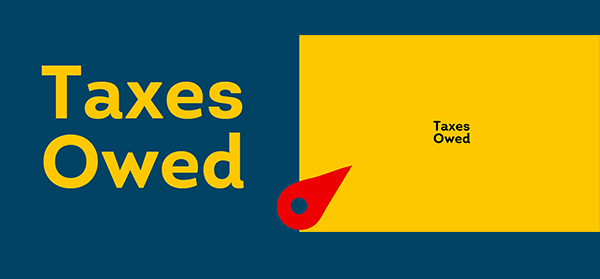Summary
Housing is a critical component of the standard of living, and as such, the United States takes its housing laws very seriously, doing their best to ensure most Americans can have access to a warm roof over their heads.
Unfortunately, some demographics have a harder time finding a place to live than others; handicapped or disabled individuals are generally protected under federal laws such as the Fair Housing Act (FHA) of 1968 and the Americans with Disabilities Act (ADA) of 1990.
Disclosure and Disclaimer
This post only contains educational information. No financial, tax or legal advice.
This information is for educational purposes only and we do not guarantee the accuracy or completeness of this information. This website may contain links to third party websites. We are not responsible for their content or data collection. Trademarks used in this material are property of their respective owners and no affiliation or endorsement is implied. Remember that this material is intended to provide you with helpful information and is not to be relied upon to make decisions. This information does not constitute financial, tax or legal advice and you should consult your own professional adviser regarding your situation.
When renting property to individuals covered by these regulations, it’s imperative that landlords are aware of the certain rights endowed to these tenants by law. Failure to comply with federal legislation can lead to a lawsuit as a result of landlord discrimination against a disabled person. Considering the cumulative costs of court fees, legal expenses, damages awarded, and time spent, such an incident could potentially force an independent landlord out of business.
Although disabled renters’ rights have been in place for decades, landlord compliance issues have spiked in recent years.
At TransUnion and with its industry-leading SmartMove® solution, we’re committed to helping landlords run online background checks to find the best possible tenants, which includes those who may have a physical or mental impairment. In this article we will cover some information you need to know when renting to disabled individuals so you can move forward with your next leasing decision with confidence.
What are Fair Housing Act Landlord Responsibilities
When the Fair Housing Act (FHA) passed in the 1960s during the Civil Rights movement, it made, in part, landlords responsible for fair housing policies by preventing discrimination against prospective renters based on race, color, religion, or national origin. These protected classes were expanded under the Fair Housing Amendments Act in 1974 to prohibit discrimination on the basis of sex, and again in 1988 to protect the handicapped and disabled.

A “handicap” under the FHA means, with respect to a person:
- A physical or mental disability that substantially limits one or more major life activity
- A record of having such an impairment
- Being regarded as having such impairment, but such term does not include current, illegal use of, or addiction to a controlled substance
There are many types of impairments your applicant may have that qualify under disabled renters’ rights. A few examples include, but are not limited to:
- Mobility impairment
- Vision impairment
- Hearing impairment
- Mental illness
- Mental retardation
- HIV or AIDS
- Chronic alcoholism, so long as it’s being addressed within a recovery program
The Fair Housing Act guidelines for rentals include multiple practices landlords need to be mindful of before, during, and after a lease agreement with a handicapped individual. These include, but may not be limited to:
- Rental advertisements
- Terms of lease agreement
- Denial of housing or refusal to qualify rental applicants
- Retaliation against an organization that assists an individual with exercising their fair housing rights
- Interfering with a person’s enjoyment of housing rights
To deny a rental applicant based on their disability, or to blatantly advertise a property as “No Wheelchairs Allowed”, would be an obvious tenant screening mistake, but the FHA rental guidelines aren’t always clear in application.
As a quick reminder, always check laws applicable to you and consult your legal counsel with questions.
Ultimately, refusing to permit reasonable accommodations and modifications may be considered landlord discrimination against disabled tenants.
We’ll take a deeper look into these types of requests in the sections below, so you can better ensure your leasing policies respect disabled renters’ rights.
What is a Reasonable Accommodation or Modification Request
When renting property to individuals with handicaps, it’s possible they may require accommodations to your lease terms or modifications to your property’s infrastructure—but what requests are considered “reasonable” in the eyes of the law
According to the U.S. Dept. of Housing and Urban Development (HUD), the agency responsible for enforcing the Fair Housing Act in conjunction with the DOJ, it is:
“… unlawful to refuse to make reasonable accommodations to rules, policies, practices, or services when such accommodations may be necessary to afford persons with disabilities an equal opportunity to use and enjoy a dwelling and public and common use areas.
In addition, the Fair Housing Act prohibits a housing provider from refusing to permit, at the expense of the person with a disability, reasonable modifications of existing premises occupied or to be occupied by such person if such modifications may be necessary to afford such person full enjoyment of the premises.”
As a possible example, it would not be considered “reasonable” if the request were to seriously impair a landlord’s ability to conduct business; for example, a landlord would not be expected to tear apart the building and install an elevator in order to accommodate a tenant on crutches who prefers a third-story unit over the ground floor option. This is indeed just a conceptual example; check the laws applicable to you and consult your legal counsel with questions.

Some examples from HUD of reasonable modifications include:
- Permitting a service animal that may otherwise be declined within a rental pet policy
- Adjusting the rent payment schedule to match when a disabled tenant receives income assistance
- Agreeing to a cosigner on a lease agreement
- Installing wheelchair ramps or grab bars for safe mobility
- Allowing a tenant to move to the first floor of the building due to impairment
Landlords generally must allow reasonable modifications to the premises, at the expense of the tenant, if they’re considered necessary to live comfortably and safelywithin the unit and public use areas. However, the modifications generally cannot make the unit unacceptable to the next tenant, unless the disabled renter is financially able to undo the modification upon moving out. Usually landlords may ask for proof of this condition, so long as their tenant screening questions are not discriminatory.
What is ADA Housing
The American with Disabilities Act (1990) deals primarily with public facilities—such as restaurants, parks, and hotels—but the legislation also includes housing accessibility under Title II and Title III. Be sure to review laws applicable to you, and check with your legal counsel for any questions.
- Title II of the ADA applies generally to housing provided by public entities (i.e. state and local government assistance, or housing at a State university).
- Title III of the ADA generally requires that public and common use spacesat housing developments are accessible.
There are several typical misconceptions about how ADA accessibility laws apply to landlords when renting property to individuals with handicaps. We’ll seek to help clarify these in the following section, but you can also refer to the Dept. of Justice ADA page as a c resource.
Do Landlords Have to Comply with ADA
Any landlord subject to ADA Title II and III generally must comply with housing accessibility laws. Please check with your legal counsel with respect to applicability, and to ensure you’re complaint with ADA rules and regulations.
ADA laws generally apply to public accommodations, including multi-family housing properties (containing two or more units), but they do not (typically) apply to the dwelling units therein. Check with your legal counsel.
For example, if you manage a property that has a community room available to all tenants, then you may be required to make the space handicap-accessible on your own dollar. The parking at your leasing office may also require a certain number of spaces to be “Van Accessible”, labeled with appropriate signage, in order to pass a drive-by test for Fair Housing compliance. Check with your legal counsel.
While landlords typically must comply with specific architectural standards for new and altered buildings—including seven design features that make a property easily adaptable for accessibility needs—they may not be required to pay for modifications to existing units.
Note: Laws pertaining to renting to individuals with handicap may also vary by state and local law. Consult with legal counsel to ensure you’re compliant with all relevant regulations.
How to Avoid Landlord Discrimination Against Disabled Tenants
For many landlords, their rental business is their livelihood, so it’s in their best interest to fill units with reliable, qualified tenants who will respect the property and pay rent on time. In an effort to keep costs down, landlords often try to hold off on renovations until they’re necessary.
However, it’s important that you respect disabled renters’ rights when leasing to individuals with handicaps in order to avoid a lawsuit. The ADA generally requires paying for accessibility modifications in public spaces, while the FHA and FHAA generally require granting disabled tenants’ request for reasonable accommodations and/or modifications, provided that they:
- cover the cost themselves
- provide proof of their condition
- restore the unit to its former condition, if necessary
Screen Every Tenant, Regardless of Their Abilities
As another reminder, this blog is not legal advice nor is this blog a complete review of all applicable laws and regulations. It’s always best to consult your attorney to prevent claims against landlord discrimination, but using SmartMove® can help you get a great start with comprehensive online tenant screening.
By generating compliant reports almost instantly, SmartMove delivers trusted TransUnion insights into a rental candidate’s credit report, criminal background and eviction history. With in-depth renter screening, you gain access to your applicant’s:
- Criminal background check
- Credit report
- ResidentScore®
- Income Insights
- Eviction Report
- Identity Check Report
We recommend adhering to applicable laws (e.g. ADA and FHA landlord requirements), and then performing screening (such as SmartMove) to help identify the best candidate in your pool of applicants. Plus, with SmartMove, you can choose to have your renter pay (check laws applicable to you and consult your legal counsel).
Know your applicant.
Additional Disclosure:
For complete details of any product mentioned in this article, visit www.transunion.com. This site is governed by the TransUnion Rental Screening Privacy Policy Privacy Notice located at TransUnion Rental Screening Solutions, Inc. Privacy Notice | TransUnion.



